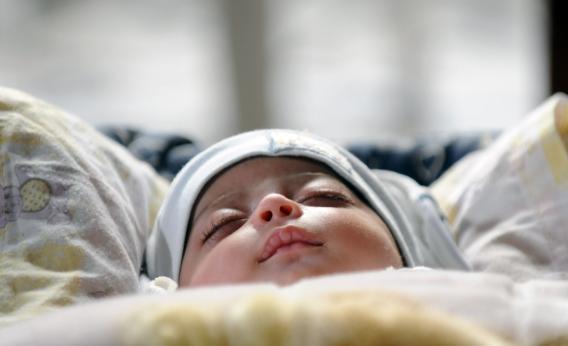There is nothing quite like watching your little one sleep. Or so I’ve heard. Doug Cornelius argued in 2010 on Wired’s Geekdad blog that video baby monitors are the best surveillance option for new parents. Video monitors allow you to witness “the magic of seeing your new baby fall asleep, wiggle, stretch, yawn, and all the cute gyrations. Non-parents don’t understand. I didn’t understand before I had a baby.”
This tech-fueled domestic bliss does indeed sound lovely—unless there’s someone else watching with you.
ABC News reports that a couple in Houston allegedly had this exact problem last week, and the man hacking into their daughter’s video monitor wasn’t “just” a quiet observer. While the couple’s 2-year-old daughter was asleep in her room, the parents heard the man call their daughter “an effing moron” and a “little slut.” When the couple entered their daughter’s room to investigate, the hacker began verbally attacking the parents. The irony for this Houston couple is painfully obvious: The very instrument designed to monitor their child’s every snore actually created a terrifying peephole and security risk.
Although this creepy incident made headlines, it appears that monitor hacking isn’t entirely new. In 2009, an Illinois dad sued the maker of a video baby monitor when he and a neighbor realized they could see and hear each other’s children through the device. The man complained that the manufacturer didn’t adequately disclose the monitor’s leaky tendencies. Although baby-monitor hacking is far from reaching epidemic proportions, it brings to light the fact that even the most well intentioned safety measures have—and sometimes even create—chinks in the security armor.
However, it would appear that more frequent than prying neighbors or plotting thieves are semi-hysteric newscasts. Both NBC and ABC affiliates taped segments on baby monitor security within a month of each other in 2010. Devoid of actual statistics on the prevalence of baby monitor-enabled thefts, each segment included ratings-bait clips of news crews driving through neighborhoods with a monitor in tow, creeping on unsuspecting cribs one after the other.
But strange as it may sound, these electronic peepholes can sometimes act as life-affirming connections: Megan Stielstra wrote in the Rumpus about how her video baby monitor, which allowed her to see an unknown mother and her baby, helped her cope with postpartum depression in the cold winter months after her own son was born. Stielstra knew that her peeping habit was creepy and probably unethical but relied heavily on the practice during a difficult time in her life: she described “connecting with someone across the void, adding your voice to the collective unconscious, feeling less alone in this crazy world.”
